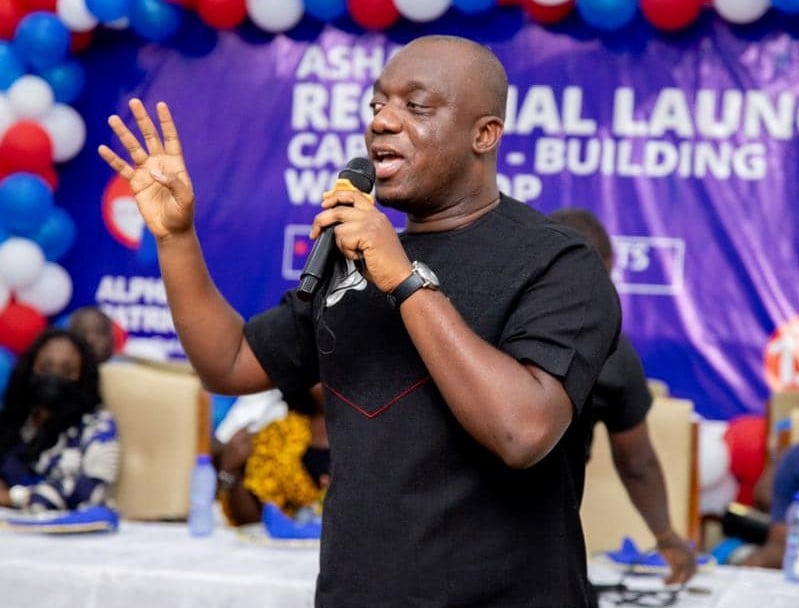The political landscape of Ghana buzzed with speculation following a social media post by Kwame Asare Obeng, known as A Plus, claiming that both the New Patriotic Party (NPP) and the National Democratic Congress (NDC) had approached him regarding his parliamentary alignment. A Plus, who won the Gomoa Central seat as an independent candidate, asserted that a delegation from the NPP, led by Kennedy Agyapong, had proposed an alliance, promising to refrain from contesting the Gomoa Central constituency in the 2028 general elections. This offer, he claimed, was intended to secure his support in Parliament, where the NPP holds a minority position with 88 seats, alongside four other independent candidates and one outstanding constituency.
The NPP swiftly responded to A Plus’s claims, issuing a categorical denial of any such overture. Justin Frimpong Kodua, the General Secretary of the NPP, refuted the allegations, stating that neither he nor the party had authorized any discussions with A Plus regarding parliamentary alignment. This denial created a cloud of uncertainty around A Plus’s assertions, raising questions about the veracity of his claims and the potential motivations behind them.
A Plus’s social media post further indicated that he was scheduled to meet with the NDC to discuss their own proposal, highlighting the complex political maneuvering taking place behind the scenes. He expressed his inherent inclination towards the NDC, while emphasizing that his ultimate decision would be driven by the best interests of his constituents in Gomoa Central and the most favorable offer presented to him. This statement underscores the strategic importance of independent candidates in a closely contested parliamentary landscape, where their alignment can significantly influence the balance of power.
The situation surrounding A Plus’s parliamentary allegiance reveals the delicate power dynamics at play in Ghanaian politics. The NPP’s denial, despite A Plus’s detailed account, introduces a layer of intrigue, leaving room for speculation about miscommunication, back-channel negotiations, or potentially strategic posturing by the involved parties. The NPP’s minority position in Parliament necessitates careful consideration of alliances and collaborations, while the NDC seeks to solidify its position and potentially gain a crucial advantage through securing the support of independent members like A Plus.
The incident also highlights the growing influence of social media in shaping political narratives and discourse. A Plus’s strategic use of social media to publicize these alleged approaches placed both the NPP and the NDC in a reactive position, forcing them to publicly address the matter and clarify their stance. This demonstrates the power of social media platforms to amplify individual voices and exert pressure on political actors, compelling them to engage in more transparent and accountable behavior.
In conclusion, the unfolding drama surrounding A Plus’s parliamentary alignment serves as a microcosm of the broader political landscape in Ghana. It underscores the importance of independent candidates in a closely contested parliament, the strategic maneuvering of political parties to secure alliances, and the increasing influence of social media in shaping political narratives. The conflicting accounts of the NPP and A Plus raise questions about the transparency of political negotiations and highlight the complex dynamics at play in the pursuit of power and influence. The eventual decision of A Plus will have significant implications for the balance of power in Parliament and could potentially shape the direction of future political alliances and collaborations.


